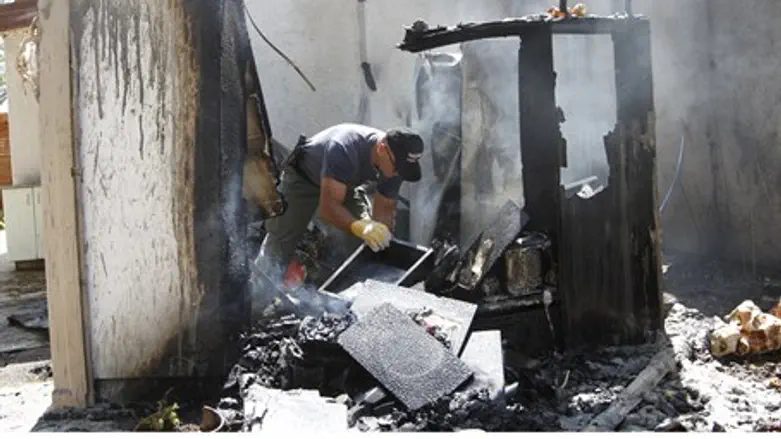
Ya'akov Argantero, a resident of Kfar Aza located in the Gaza Belt just outside northern Gaza, told Arutz Sheva he intends to stay at his home for the Jewish New Year (Rosh Hashana) starting Wednesday evening despite great unease.
"The feelings are really difficult, there's still a lack of certainty and an insecurity, a fear of what will happen on Rosh Hashana," Argantero revealed.
Speaking about the family's plans for the holidays, he commented "we will stay at home and my oldest daughter is supposed to arrive with the granddaughters. There's optimism and we want to maintain our routine lifestyles, but it isn't easy."
Argantero noted that most Kfar Aza residents will not be remaining for Rosh Hashana, and indeed reports have indicated most residents of the wider Gaza Belt region will be leaving the area for the holidays, some saying they may not return due to the feeling of insecurity created in the wake of Operation Protective Edge.
"I estimate that most of the families with children will celebrate the holiday out of the area," said Argantero. "I'll continue my routine because this is my home. I hope next year will be a year of quiet, peace and comradeship between all, first of all here at home (among Jews), and afterwards with our (Arab) neighbors."
But putting his concerns into words, the southern resident stated "we hope there won't be a surprise like in the (1973) Yom Kippur War."
The fears are based on the fact that Hamas's lethal array of terror tunnels was unveiled to deadly effect in the Gaza operation, with the IDF destroying over 30 tunnels, but with many others feared to still be in existence. Furthermore, reports have revealed that Hamas terrorists have already restarted digging the tunnels.
During the operation, it was revealed that Hamas was planning to use its terror tunnels to commit a massacre against Jews in the region on Rosh Hashana.
Argantero concluded by saying "I trust the IDF (to ensure) there will be quiet and hope that my livelihood will return, because we never had such an (economic) hardship - for months we didn't work (due to the fighting)."
The question of trust comes after a survey released Tuesday found 61% of Jewish Israelis do not trust the government, and roughly half were unsatisfied with the party they voted for in the last election. The recent Gaza campaign, which is the third such operation and which once again left Hamas intact with its weapons, is thought to be the cause of the widespread disappointment.